-

In a back alley of Bengaluru, shrines of Christian saints and the Hindu deity Ganesh share the same property.
-
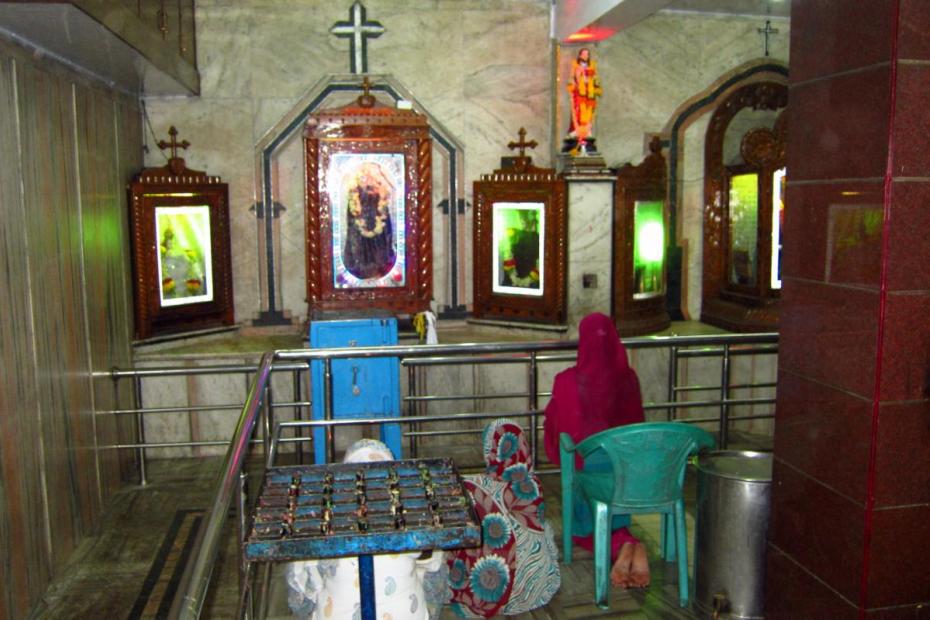
Women praying inside St. Anthony's shrine, one of the small, privately built Catholic shrines in Bengaluru.
-
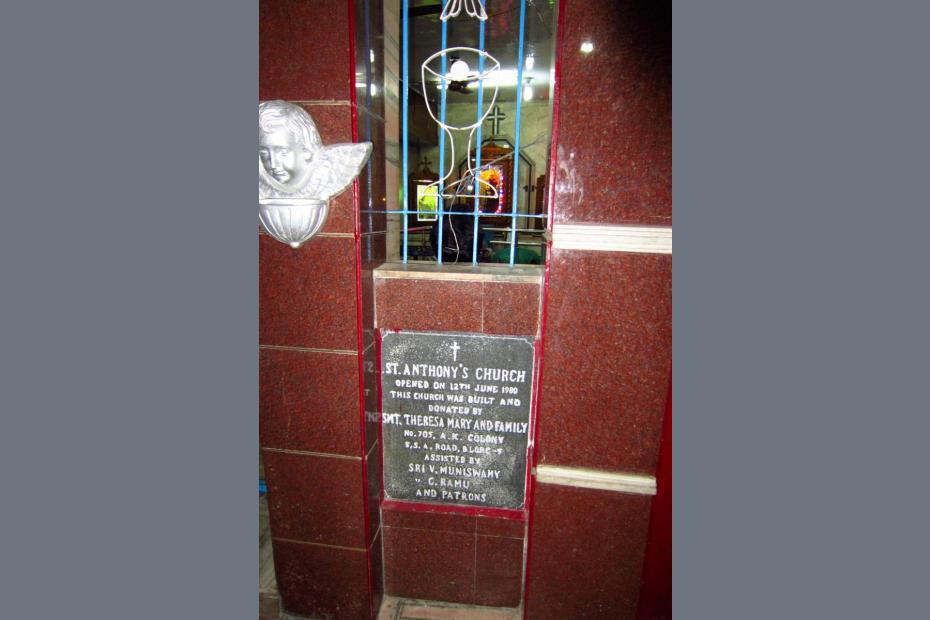
This stone notes the names of key patrons of St. Anthony's Church.
-
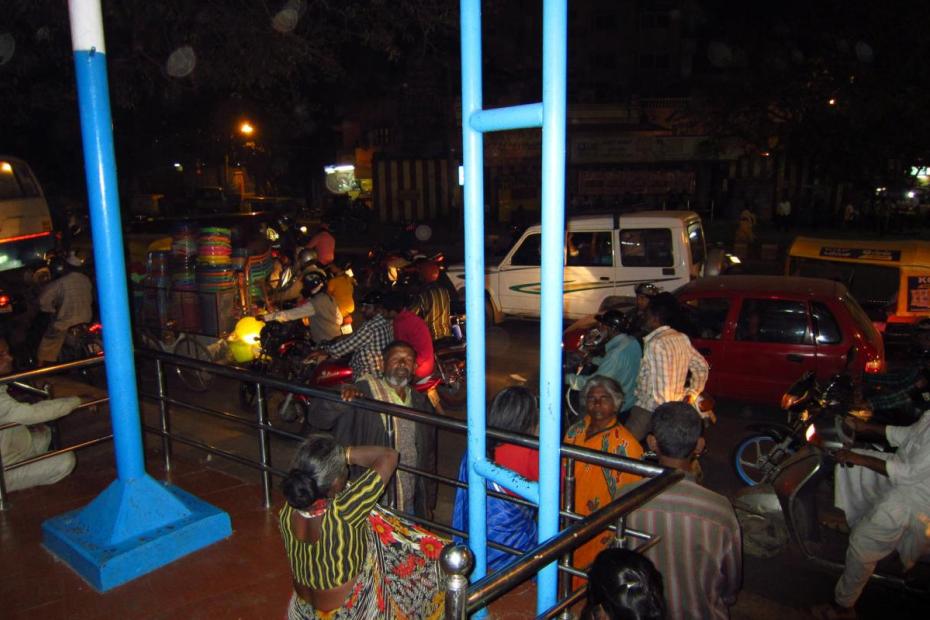
St. Anthony's is in a slum area at a very busy intersection.
-
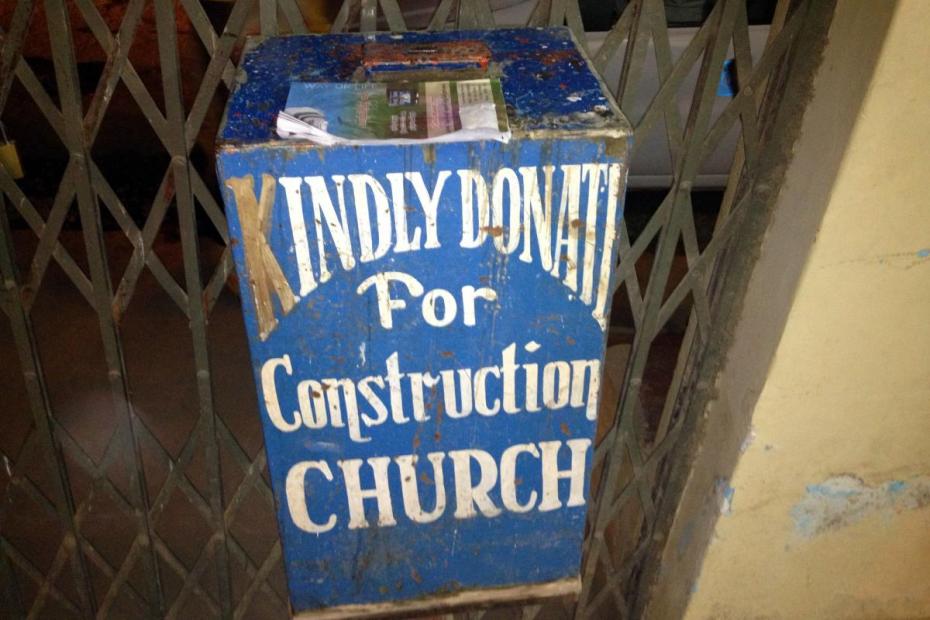
St. Anthony's shrine was built by a private family, and asks for donations for its maintenance.
-
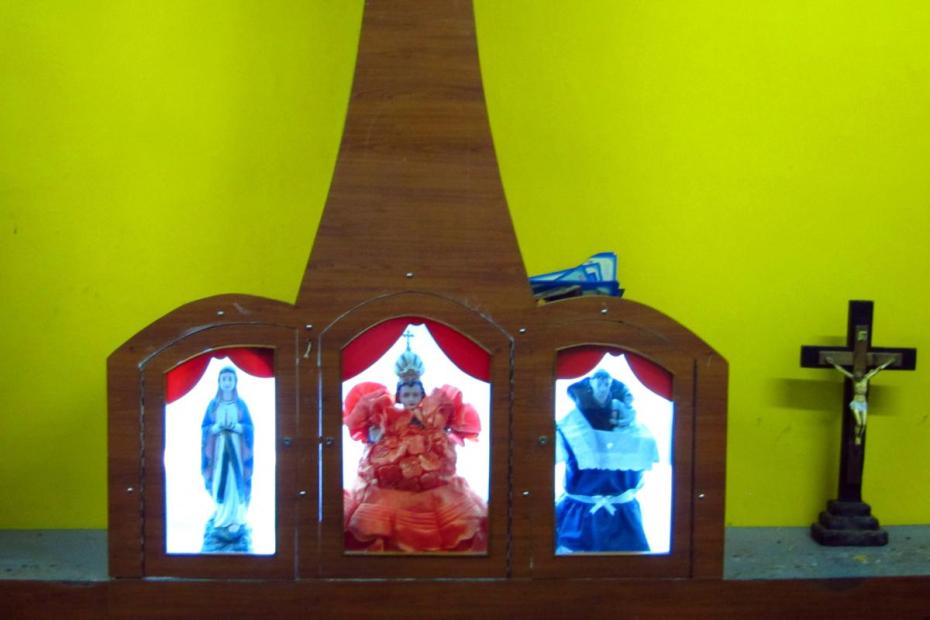
St. Anthony's Shrine, William's Town, Bengaluru.
-
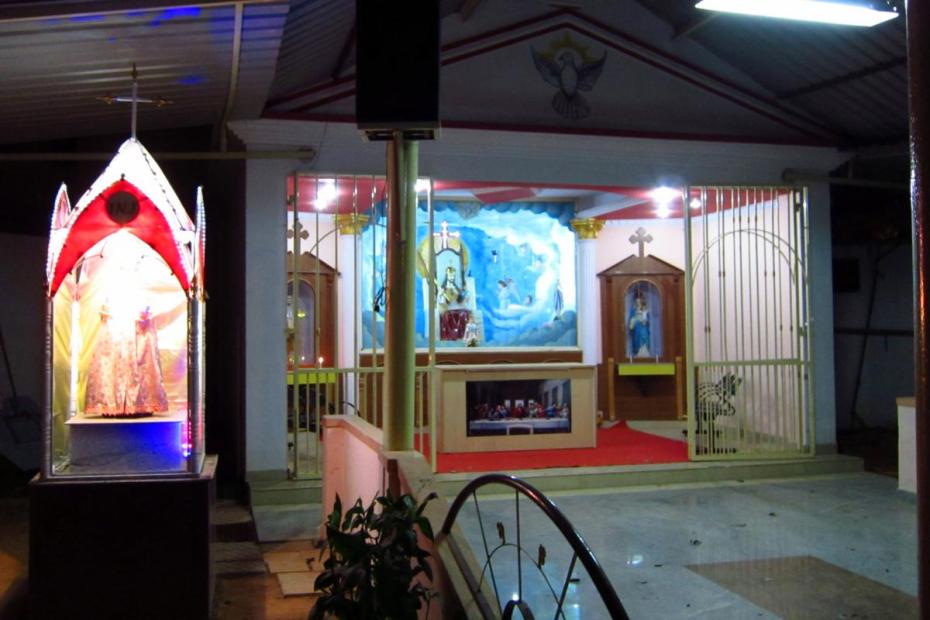
St. Anthony's Shrine in William's Town, Bengaluru, is connected to a parish, and occasional Masses are held here.
-
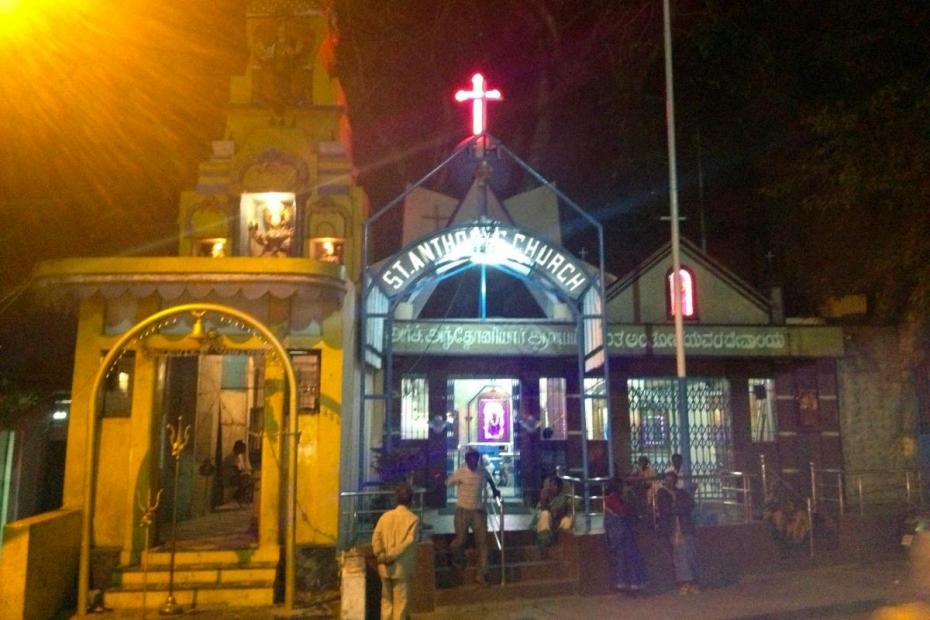
St. Anthony's Church Bengaluru is one of many privately built, unofficial shrines in a heavily trafficked slum area. To its immediate left is a similar Hindu temple.
-
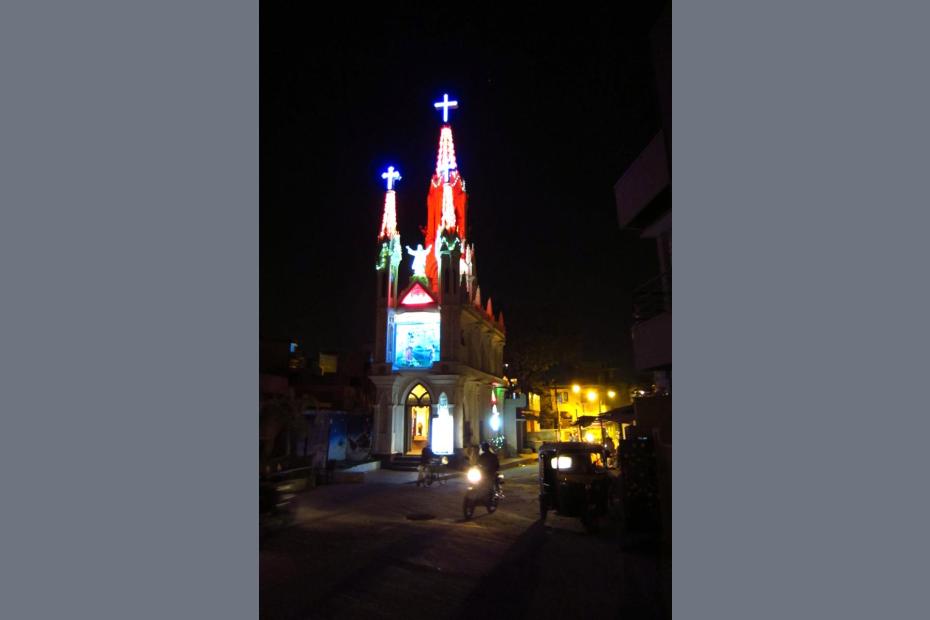
The Annai Vailankanni devotional chapel, Bengaluru, a freestanding chapel in honor of our Lady of Vailankanni.
-
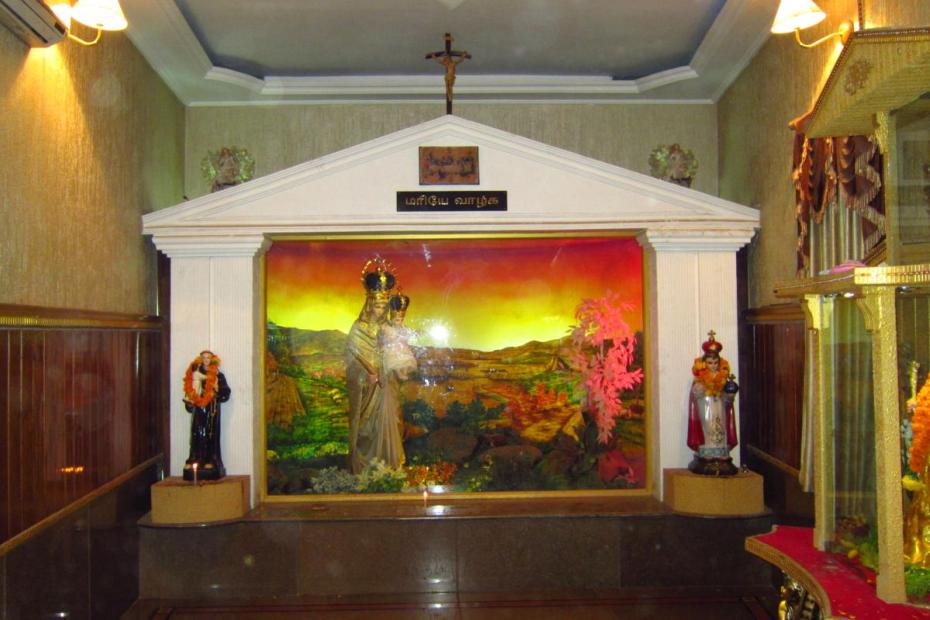
Interior of the Annai Vailankanni chapel.
-
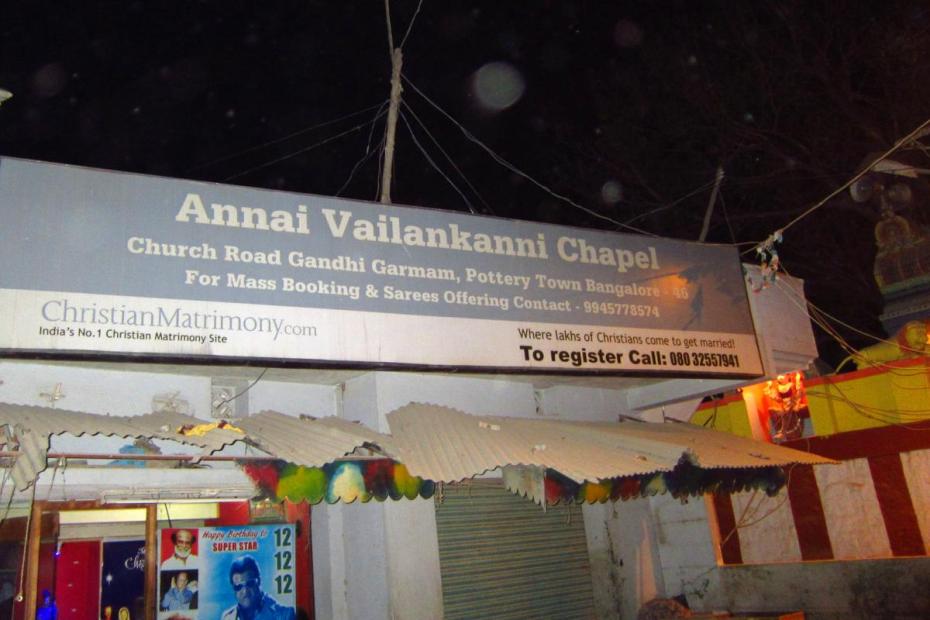
The Annai Vailankanni chapel in Bengaluru, and its sponsor.
-
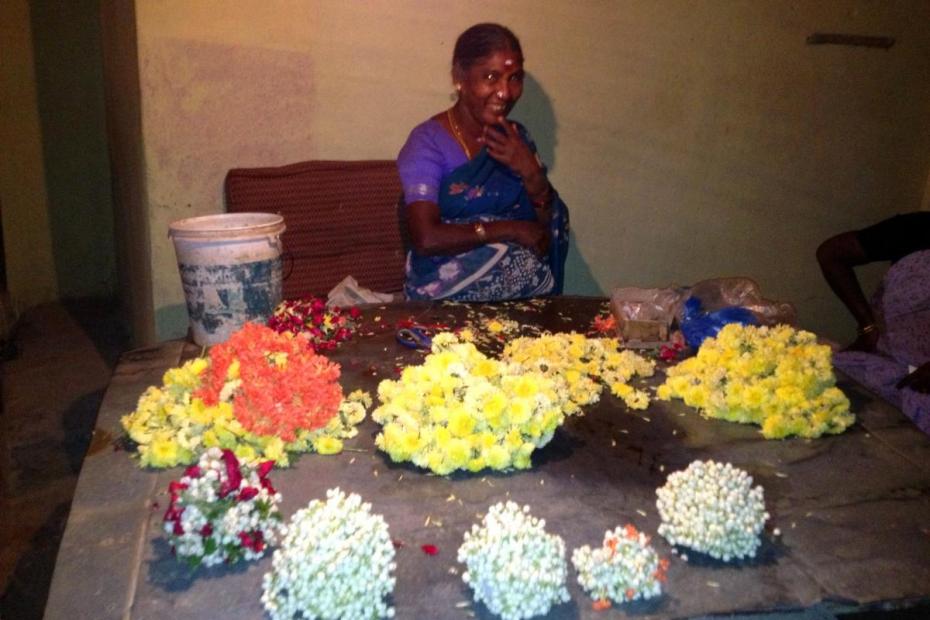
Flower vendor for offerings sits across from the Annai Vailankanni chapel.
-
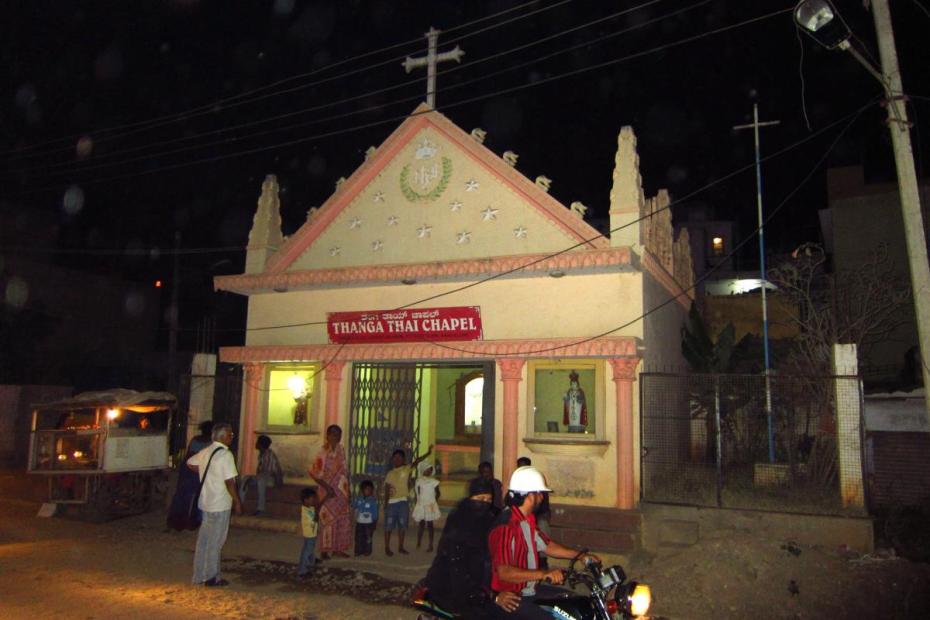
Thanga Thai chapel, a roadside chapel near Potterytown, Bengaluru.
-

Madonna and child at a free-standing shrine in the William's Town section of Bangalore
Bengaluru is home to many shrines in back alleys and in poorer areas that have been built by devotees without official church sponsorship. Some are connected to parishes, and are sites for occasional masses. Others are built by families as sites for prayer in front of one or more statues, though they are sometimes called "churches." A number are located immediately next to Hindu shrines, though it is unclear which shrine came first. Located in unexpected places, they are reminders that the divine can be manifest anywhere and everywhere in Indian society. These shrines are active throughout the day, as places that one can stop in briefly during work hours, or in mornings and evenings.













